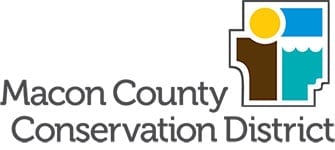Living Green: Home & Garden
Rethink Paper and Plastic
Instead of reaching for a paper plate or plastic cup, use reusable items. Most disposable paper and plastic products are not biodegradable. After your one time use of these products, they wind up in landfills and waterways. Also, consider buying a reusable water bottle for when you’re on the go, instead of cases of single use plastic bottles of water.
Go Paperless
Reducing the amount of paper we use and reusing paper is good for the environment. Here are some ways you can reduce, or eliminate, your paper use:
- Read articles online from your favorite magazines and newspapers.
- Rather than receiving bills and statements in the mail, sign up for email notifications and automatic payments.
- Cut down on the amount of junk mail you receive by eliminating your name from unwanted subscription lists.
- Review and store documents digitally instead of printing out hard copies. You can back up important files by storing them on a second device or external hard drive.
- Instead of buying books (and acquiring excess “stuff” in your life), borrow them from your library.
- When you do need to purchase or use paper, opt for paper and other products that contain recycled fiber. This helps stretch our forest resources and helps curb waste disposal problems.
Make the Plastic Bag History
We use 8% of the world’s oil supply to make plastic, including billions of plastic bags each year. Not only is this a huge waste of resources, but it results in tons of unnecessary long-term landfill and contributes to pollution in our oceans and waterways.
Take a reusable shopping bag with you when you shop. Better yet, keep a few in your car so you’ll have one whenever you need it. (From 1,001 Ways to Save the Earth by Joanna Yarrow.)
Use Recycled Trash Bags
If you need to purchase trash can liners, look for a brand with 100% postconsumer recycled content. Producing trash bags from recycled plastic requires less energy than manufacturing those same bags from virgin plastic.
If just 1 in 10 U.S. households began purchasing trash bags made from 100% recycled materials, the annual energy savings could meet the heating needs of four thousand households in Fargo, North Dakota, for the entire year.
From The Green Book by Elizabeth Rogers and Thomas M. Kostigen (https://www.amazon.com/Green-Book-Everyday-Saving-Planet/dp/0307381358)
Clean Safer While Spending Less
Some of the chemicals in household products can harm people, animals, and plants. They pollute the air, water, and soil when they are sprayed, go down the drain, or are thrown away. Here are some ideas to reduce your use of chemicals at home:
Buy Cleaning Products that are Environmentally Sensitive
Many companies offer “green” cleaning products and some good old favorites that have always been environmentally friendly:
- Look for products that are made from plant sources, rather than petroleum, and are free of chemicals that can irritate (such as chlorine) or pollute (such as phosphates).
- Murphy’s Oil Soap is an example of a vegetable-based soap that cleans wood floors and furniture.
- For dishes, choose detergents free of chlorine, phosphates, and synthetic chemicals.
- For stuck-on grime, try a biodegradable scouring powder.
- To whiten surfaces, choose a non-chlorine oxygen bleach cleanser.
Make Your Own Cleaning Products
Making your own cleaning products is inexpensive and easy:
Basic Ingredients
- Baking Soda – works on proteins, grease, and animal messes, and can be used for scouring. It is also a natural deodorizer.
- Distilled White Vinegar – use to dissolve scale, inhibit mold, and to cut soap scum. Try on stains of coffee, rust, or tea.
- Simple Soap – Try castile soap, made with olive oil, or a vegetable-based soap. These attach to soil at the molecular level, so you can rinse dirt away with water.
Recipes
- Soft Scrub – Add enough soap to 1/8 cup baking soda to make a creamy mix. Apply with sponge to clean and rinse the surface well. Use and discard.
- Appliance Cleaner – Dry baking soda shines up small appliances. Try rubbing a teaspoon onto your appliances with a clean flannel cloth.
- Toilet Cleaner/Deodorizer – Sprinkle toilet with ¼ cup baking soda. Drizzle with ¼ cup vinegar and scour with a toilet brush.
- Oven Cleaner – Sprinkle oven with ½ cup baking soda and spray with water. Let sit for several hours or overnight before scraping up stains and spills. Rinse thoroughly with water.
- Hardwood Floor Cleaner – In a bucket, mix ¼ cup distilled white vinegar in one gallon warm water. Mop wood or linoleum floors, and then rinse with water, making sure not to leave large pools to dry.
- Glass Cleaner – Mix ½ cup of distilled white vinegar and 4 cups of water and pour into a clean spray bottle. Spray the glass and clean.
- Furniture Polish – Mix 1 ounce of lemon juice and 2 ounces of olive oil. Use a clean, soft cloth and make the furniture beautiful!
The Power of Vinegar
Vinegar can be used for more than just cooking. It is actually one of the best products you can use to clean around the house. Vinegar is not only an environmentally-friendly cleaning product, but it’s also inexpensive. Pull your vinegar out of the cupboard and put it to good use:
- Wipe the vents in your oven with vinegar to eliminate grease build-up.
- To unclog a sink, pour equal parts of baking soda and vinegar down the drain. Let it sit for several hours, and then pour hot water down the drain. Your sink will be clog-free!
- Rub vinegar on your cutting board with a soft towel to eliminate strong odors like garlic.
- Combine water, vinegar, and detergent in a bottle with a nozzle. Shake the bottle to combine ingredients and spray the solution on your windows for a streak-free shine.
- To clean stainless steel appliances in your kitchen and bathroom, dampen a soft towel with vinegar and rub it over the surface.
- After you shampoo, saturate your hair with equal parts water and vinegar. Let set for a few minutes and then rinse. This will eliminate any shampoo and hair product build-up, in addition to sealing the hair cuticle.
Take Your Shoes Off
If you don’t normally take your shoes off at the door when you enter your house, you may want to reconsider. Chemicals (and germs) that are on your shoes can be spread all over your home, which can be harmful to your family’s health. Place a door mat outside and inside exterior doors and enforce a no-shoes policy inside.
Shopping Tips for Reducing Trash
According to the Sierra Club, every American produces about 4.5 pounds of garbage a day. Items with excess packaging and products that need to be discarded after only a few uses cost more money, use up valuable resources, and create more waste.
Earth 911 offers these Green Shopping Tips:
When shopping for food and household goods, buy in bigger quantities. A larger container often means less packaging. A family of 4 can save $2,000 a year in the supermarket buying a larger size. It takes 10 cents of every shopping dollar to pay for packaging.
Buy items like cereal and raisins in a large box instead of individual serving sizes. You can portion snacks out in reusable containers.
Buy juice in concentrates and use reusable containers instead of single serving packs.
Ban bottled water – it produces a lot of container waste and the water quality is nearly the same as tap water. If you have to buy bottled water choose a large plastic jug, instead of a case of individual bottles, and use reusable drinking containers.
Look for “refill packs” when available for products such as diaper wipes: They use up to 90% less packaging than regular, hard-plastic containers.
When you buy just one or a few items, do you really need a bag to carry them in?
- If you do need a bag, consider using a reusable cloth bag.
- You can also bring plastic or paper bags from previous shopping trips to use again on the next shopping trip.
- Store your bags in your car so you always have them available.
- Don’t forget that you can use reusable bags when shopping for things besides groceries, such as clothes and holiday shopping.
Laundry
Line-Hang Laundry to Dry
Line-hanging your laundry is one occasion when the growing strength of the sun’s rays actually comes in handy. You can keep your whites looking white by letting them soak up some sun.
Skipping the dryer also saves your wallet. Dryers are a household’s most energy consuming appliance, and therefore expensive. Line-hanging your laundry also extends the life of your clothes, since dryers pull off fibers (producing lint) and damage elastics over time.
Phosphate-Free Laundry Detergents
Detergents are soaps made from synthetic materials, and have a long history of being loaded with Phosphates. Phosphates help boost the cleaning efficiency of detergent, but have harmful effects on rivers, lakes, streams, and other fresh waters. Phosphorous is an important plant nutrient, but when so much of it pours into natural bodies of water (ultimately from our dishwashers and washing machines) levels of phosphates in these fresh water bodies are much higher than usual.
The result? Algae in the water grow faster than they should, turning clear lakes and rivers green and cloudy. This extra algal growth is not only unappealing to look at, but can also make the water smell bad and make it unsuitable for swimming.
In the long run, the excess algal growth can have devastating impacts on the health and age of a fresh water lake or river, causing eutrophication to speed up, where lakes and other water bodies fill in with dead algae and other organic matter and eventually turn into dry land.
Reduce your impact by only purchasing detergents made without phosphates. Seventh Generation, Ecover Natural, and Trader Joe’s brand are all good to try.
Donate & Recycle Old Clothes
If you are in the market to spruce up your wardrobe, don’t just throw away your clothes. Donate them to Goodwill or give them to a neighbor, friend, or family member.
For clothes that are not in good enough condition to give to a local resale store, turn them into rags for dusting and cleaning around the house.
Lawn Care
Tips for a Green Lawn
Forget trying to make your lawn look like a golf course putting green, and keep your grass longer. Longer blades discourage weeds and pest insects, which means you are under less pressure to apply toxic pesticides and herbicides. Longer grass also shades the roots more, and helps prevent the soil from drying out. It tends to lead to healthier roots, so your green carpet will be hardier, and should require less water in the long run.
Experts agree that it’s better to mow regularly, and to remove no more than one-third of the blade length at a time. That way, stress on the grass will be minimized. Don’t forget to keep cutting blades sharp, as that prevents the tearing that is hard on plant tissue.
Different types of grass have different optimum heights. So, it’s not a bad idea to consult gardening books, or speak with the staff at your local nursery or cooperative extension office to determine what’s best for your yard.
Reduce Your Lawn and Help Wildlife
Unlike native plants, traditional American lawns don’t provide a good source of food or habitat for most types of wildlife. Native trees, shrubs, ground cover, prairie or meadow patches, flower beds, and attractively mulched areas are better choices for people and wildlife.
Some reasons to reduce your lawn:
- Save time and money that you would normally spend on mowing and fertilizing grass.
- Provide habitat and food for wildlife.
- Conserve water.
- Reduce lawn mower pollution and decrease run-off from fertilizers and pesticides.
Ways to reduce your lawn and help wildlife:
- Use native plant species as ground cover instead of grass
- Install native trees and shrubs
- Create a water garden or pond
- Create a rock garden
- Use mulched paths
How Big is Your Carbon Footprint?
Do you know your household carbon footprint? Use the Evironmental Protection Agency’s calculator to get an estimate, and see if there is room for improvement at your house!
After making your calculations, explore Living Green: Energy Conservation for ideas on how to improve your score.


